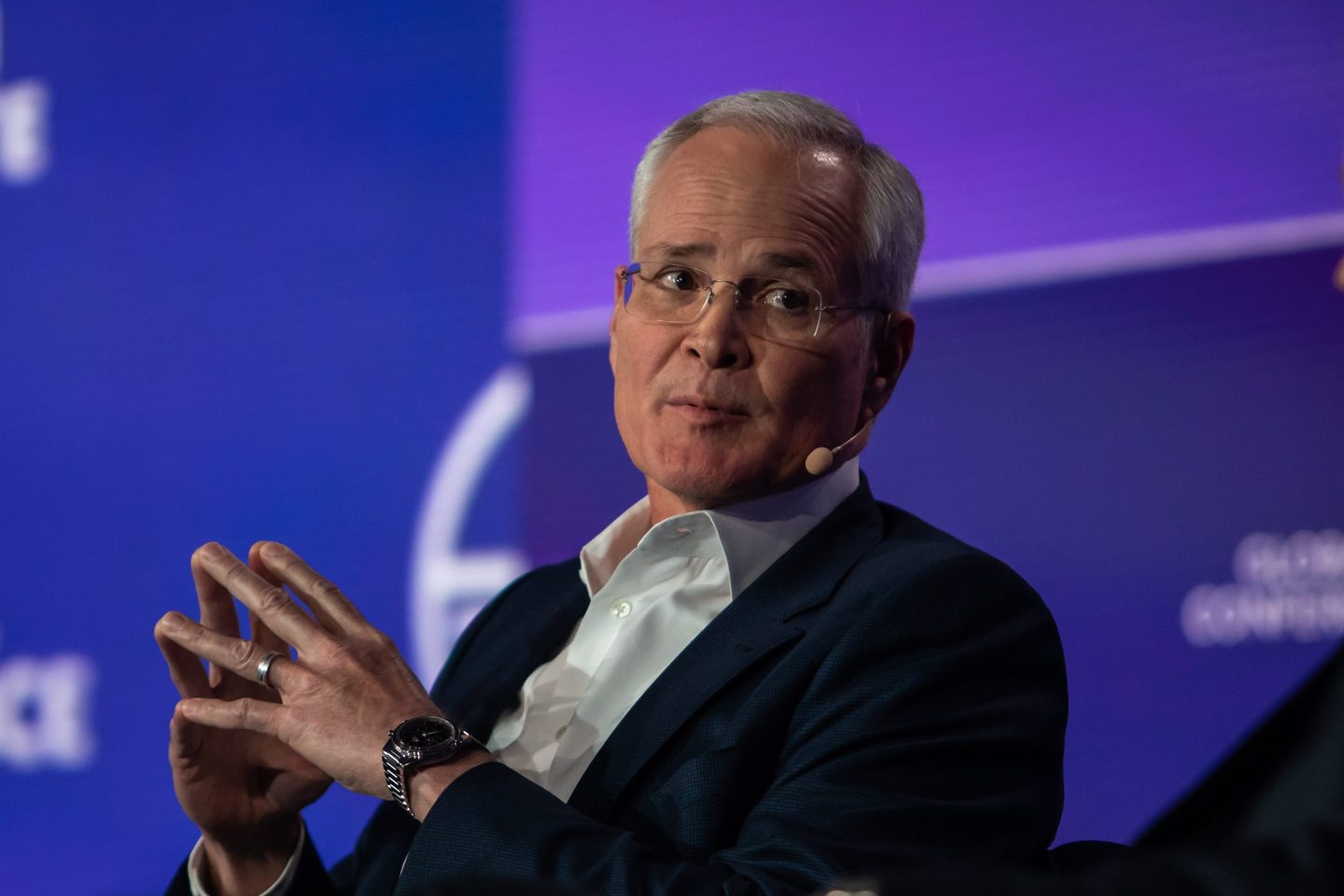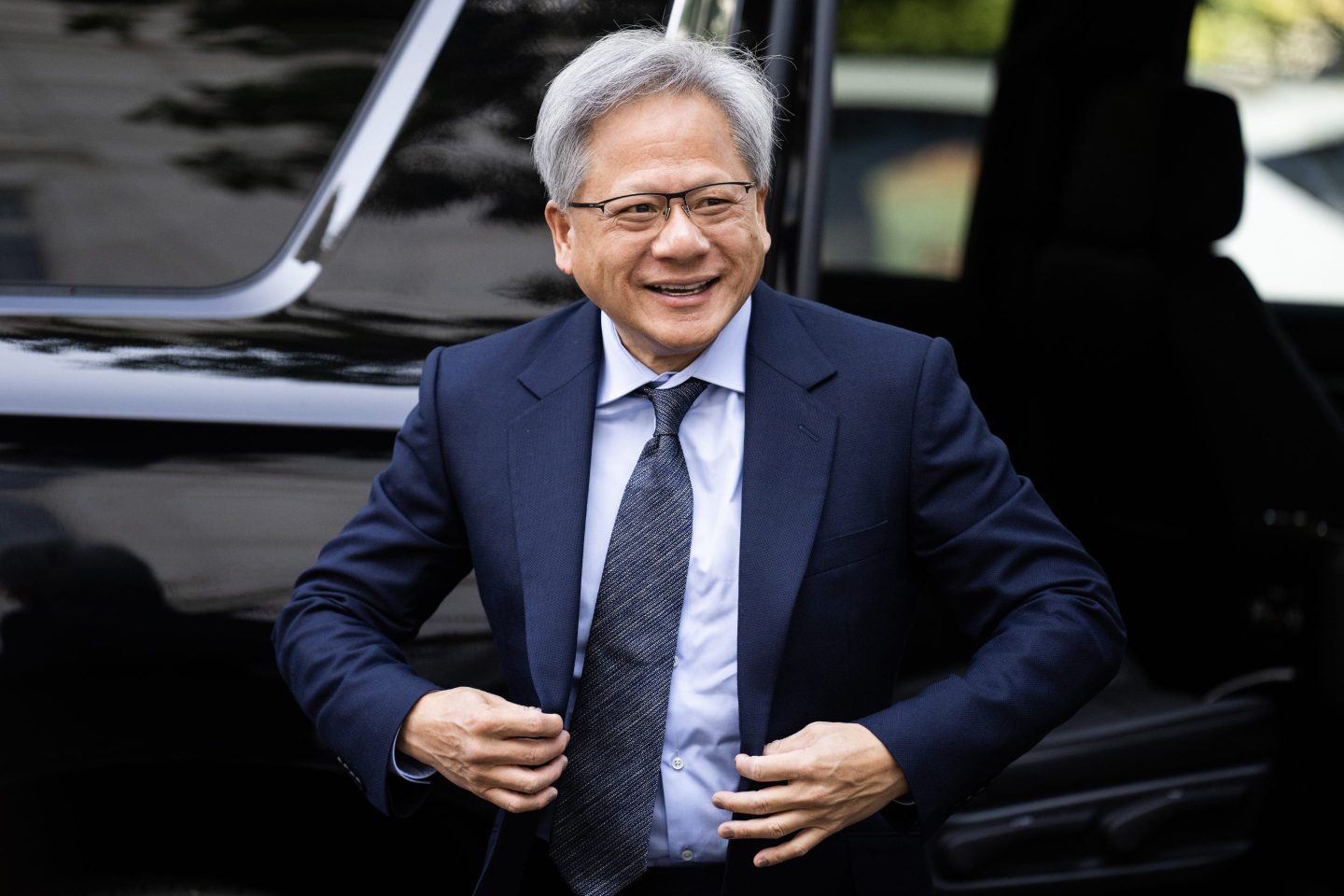Hello from the United Arab Emirates, where I am attending the United Nations climate meeting in Dubai. Expect to read a lot of news in the next two weeks from here. The UN Conference of the Parties climate summit taking place here through Dec. 12 has become the place to be for global business leaders, perhaps even ahead of Davos. Some 70,000 delegates will be in attendance, including thousands from the private sector.
Why do corporate chiefs attend a UN meeting? For decades, climate summits were the exclusive remit of governments, not business. All major climate agreements at COP meetings, including the Kyoto Protocol in 1997 and the Paris Agreement in 2015, were the result of diplomatic negotiations. But starting in Paris, and more recently, the COP26 meeting in Glasgow, business started to pop up alongside governments and NGOs, mostly on the sidelines.
In Glasgow two years ago, you were likely to run into Bank of America’s Brian Moynihan, Enel’s Francesco Starace, or executives from Volkswagen, Shell, BP, McDonald’s, IKEA, Walmart, Schneider Electric or Microsoft, just to name a few.
The executive presence served a purpose. Agencies such as the UNEP Finance Initiative or UNFCCC Climate Innovation Fund are specifically built to engage with the private sector. UN special envoys paved the way—notably former British central bank governor Mark Carney, who used the COP in Glasgow to enlist companies in a UN agreement tailor-made for them: the Glasgow Financial Alliance for Net Zero.
But as I have looked into companies as varied as cement maker Holcim, big tech firm Amazon, utility firm Iberdrola, and wind farm maker Orsted recently, it dawned on me there is another reason companies go to these climate meetings: to meet with like-minded companies from other industries and make business deals specific to their climate goals.
For the nearly half of large companies in the U.S. and Europe that have committed to a net-zero goal, often including upcoming initial milestones, reducing carbon emissions, both from their direct energy use and the products they create, is a priority. Doing so often requires outside help, far beyond even one’s own supply chain—which is where a global meeting aimed at achieving net zero comes in handy.
The COP meeting in Dubai still has government meetings at its heart. But in the expo-like conventions surrounding the multilateral main stage, companies do participate and make private deals. Microsoft, for example, set a goal of being carbon negative by 2030. To meet the goal, it will need things like a clean electricity supplier for energy use and a construction firm for energy-efficient warehouses. But the company also has climate solutions that other companies and governments may want to buy. Attending COP meetings can facilitate connections across these needs, and indeed, I met Microsoft representatives in their COP pavilion, working on exactly these kinds of initiatives.
Companies also attend COP for other activities, like lobbying. According to Corporate Europe Observatory, an advocacy group, fossil fuel lobbyists attended UN climate talks more than 7,000 times over the past 20 years, in what the group calls a “decades-long campaign to influence climate action.” Since COP9 in 2003, the group found, “disclosed employees of fossil fuel firms have attended negotiations a minimum of 945 times.” Surely employees of Big Oil and other companies will take the opportunity to lobby against a rapid phasing out of fossil fuels. Such activity is one risk of business and government mixing in the context of global climate goals.
Overall, COP has become more than an event for governments to hash out deals while a handful of companies work to subvert that effort. In some ways, it has become the ultimate global business gathering. Let’s keep our eyes on what comes out of COP28 in Dubai.
Also, the first edition of my new newsletter, CEO Weekly Europe, went out this week; I covered Newcleo CEO Stefano Buono’s effort to sell Europe on a new generation of nuclear energy. You can sign up to receive CEO Weekly Europe in your inbox here.
More news below.
Peter Vanham
Executive Editor, Fortune
peter.vanham@fortune.com
This edition of Impact Report was edited by Holly Ojalvo.
ON OUR RADAR
COP opens with "breakthrough deal" on loss and damage fund (UN)
Delegates meeting in Dubai agreed Thursday on the operationalization of a fund that would help compensate vulnerable countries coping with loss and damage caused by climate change, a major breakthrough on the first day of this year’s climate conference, the UN announced.
I was in the room when the European Union announced its participation in the fund, and pledged a $245 million contribution, to loud applause from the delegates. The U.S.'s contribution of $17.5 million was met with a much more tepid response.
Our take: It isn't so much the amounts that matter in this first phase, it's the principle. By setting up a loss and damage fund, countries give legal precedent to the principle that "the emitter pays." Businesses, too, should pay attention, because if governments subscribe to this principle in multilateral agreements, they might also translate it into a national principle.
INBOX: People care a lot about climate, but they don't understand it (APCO)
"Climate change is the biggest concern for people around the world," PR firm APCO and the World Business Council for Sustainable Development found in their inaugural global Climate Action Confidence Tracker. Forty-three percent of individuals ranked climate as their top concern, above corruption, wars, and inequality. But APCO notes:
- While seven in 10 people agree that climate change is important, they find it hard to tell who is doing anything about it or who is leading on action.
- The global public is also split on whether it's better to reward companies doing their bit on climate or punish those that are not.
- Less than half of the public understands climate change terminology.
Our take: These are exactly the kinds of insights business needs to go from commitment to action on climate or from action to acceleration.












